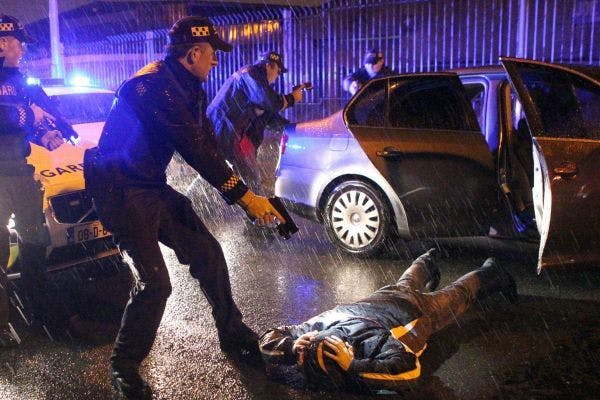Whistleblowing on the ‘war on drugs’
By Jason Reed
I first met Neil Woods at a drug law reform conference. Knowing an undercover drugs detective was watching me give a speech, I scanned the audience, trying to spot who it could be. What kind of character chooses a career of gang infiltration, treading an encumbered path, losing your own identity in efforts to catch gangsters?
I was surprised when Neil came forward to introduce himself. Far from the storybook cop that I expected to meet, Neil struck me as a quiet and obviously humble individual. He had an understated charm and blisteringly apparent knowledge. Neil was keen to begin his journey of what he would possibly describe as atonement. I was acutely aware that Neil’s story was fascinating to the point of unfettered intrigue and voyeurism.
It was clear that Neil’s allegory should be heard, and it didn’t take long for community interest groups and the media to take an interest in his story. Culturally, we seem to be fascinated by works of fiction such as The Wire, Trainspotting, Breaking Bad, we’re enthralled by drugs and the overlapping cultures – but does real life differ from dramatisation?
In his career on the streets, he witnessed beatings, stabbings, had swords held to his own throat, and was in grave danger on a near daily basis, all in the name of policing our drug laws. This is not the kind of work you train for; it’s the very definition of ‘on the job’ and one mistake could well be your last. Not to mention the rather taboo subject of police corruption. Where there’s money, there’s corruption, and with a global trade of around $320billion per year, it’s easy to see how drug money permeates every level of society.
Unprecedented insight comes from being at the coalface of the ‘war on drugs’ – Neil witnessed first-hand that 90 per cent of drug use is non-problematic, a figure which the UN also recognises, and yet we wield a rather large stick at those who consume certain drugs. Costing around £7 billion per year to the British tax payer, efforts to criminalise our way out of a problem are only made worse by the punitive polices which we try and apply.
Keep up-to-date with drug policy developments by subscribing to the IDPC Monthly Alert.
Thumbnail: Flickr CC secretive ireland
Topics
Regions
Related Profiles
- Law Enforcement Against Prohibition (UK)
